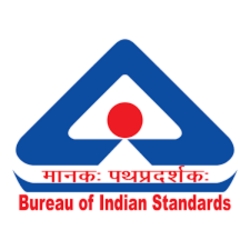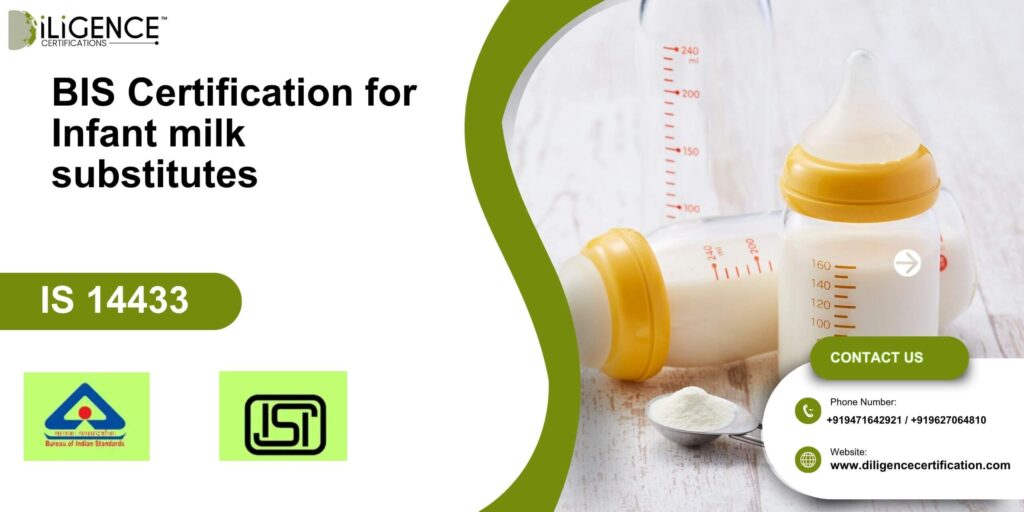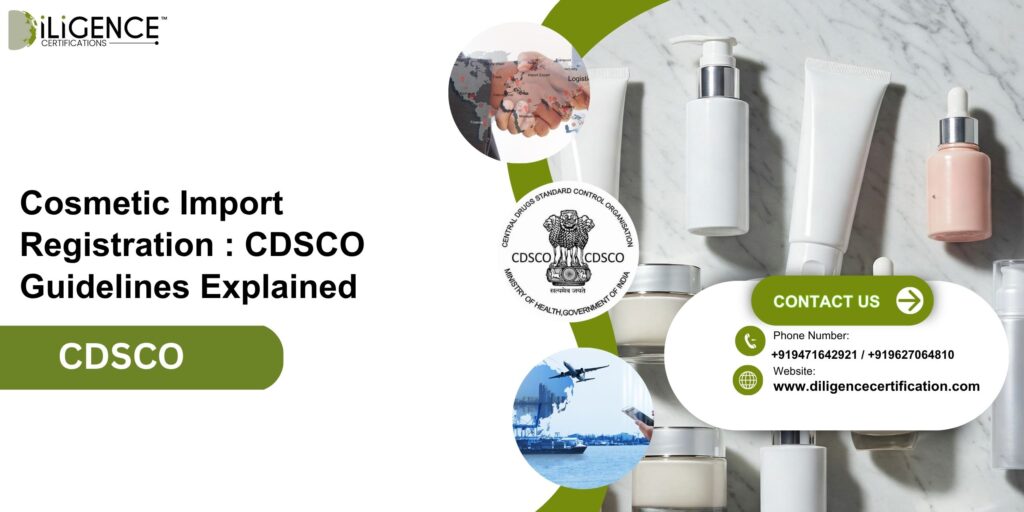- The very first step to making sure that the safety and nutrition of the milk is met is BIS Certification for Infant Milk Substitutes under IS 14433.
- Such certification enables correct labeling, sanitised packaging, as well as microbiological quality to be maintained.
- The certification creates parent trust as well as manufacturer credibility.
- In addition, the certification also gives the company a lower probability of getting into recall, facing fines, or receiving customer complaints.
- Further, it also allows the organization to build up a good reputation among the brand and be accepted by the Indian market.
Introduction
Despite offering good-quality products, an Indian brand of infant formula was facing a drop in its sales. A call for safety, nutrition, and compliance issues, were the main reasons for the parents’ indecision. Besides these problems, BIS Certification for Infant Milk Substitutes under IS 14433 appeared to be the way out. This certification is the one that ensures safety and nutritional standards of products for infants. The certification also represents the clean and proper production process as well as the provision of accurate labeling. In the case of infant nutrition brands, BIS certification is the key to consumer trust and market dominance.
What is BIS Certification for Infant milk substitutes

BIS Certification for Infant Milk Substitutes is a hallmark of quality and safety provided by the Bureau of Indian Standards (BIS) to the products that are in compliance with the Indian Standard (IS) 14433. This certification denotes the products that are the first choice of nutrition for infants and are allowed to be used when breastfeeding is discontinued. Additionally, this hallmark ensures that the products are safe and secure as they are free from contaminants and also have the appropriate nutritional values, necessary use instructions, and so be of user convenience.
The certification evaluates:
- Nutritional content – ensuring the right levels of protein, fats, carbohydrates, vitamins, and minerals.
- Microbiological safety – controlling harmful bacteria like Salmonella and E. coli.
- Packaging and labeling – The provision of all the necessary information to the consumer, including age group, shelf life, and usage instructions.
What is IS 14433?

BIS 14433 is an Indian Standard that specifies the requirements for formula or milk supplements for infants of 0-12 months recommended by the Bureau of Indian Standards (BIS). The standard lays down safety, hygiene, and nutrition requirements and also provides directions of use for products that are used during the first year of the infant’s life as supplements to or replacements for breast milk. ISI MARK
Key aspects of IS 14433 include:
- Nutrition Requirements: It specifies exactly the amounts of the different nutrients-the proteins, fats, carbohydrates, vitamins, and minerals which should be present in the diet of babies in India to maintain a balanced diet.
- Microbiological Security: It determines the needs of precautions against the infections which could be the source of nutrition contamination like Salmonella, E. coli, and other bacteria.
- Packaging and labeling requirements: Safety measures as a part of storage, for instance, protection from ultraviolet rays, water vapor, oxygen, etc., and age-specific, usage, and shelf-life of the consumer product are only a few instances of how the consumer is being protected.
- Quality Assurance: This is a guide on different tests, sampling, and factory methods which are all aimed at achieving product quality standardization.
Who need BIS Certification for Infant milk substitutes
As per IS 14433, manufacturers, importers, or distributors of infant milk substitutes need to get BIS certification. The necessity of certification is available for the following categories:
- Manufacturers of the Domestic Market: Domestic manufacturers refer to companies that produce infant formula, follow-on formula, or any other milk substitutes for infants in India.
- Importers: First of all, those who bring in infant milk substitutes from abroad must get BIS certification for distribution.
- Packers and Repackers: The people who are into packaging or repackaging of infant milk products for retail sale are the packers and repackers.
- Distributors and Retailers: Even though certified products are not always mandatory for sale, they are an option, which allows legal compliance, and thus, the confidence of consumer trust is gained.
Simply, anyone who makes, processes, or sells infant milk substitutes in India is to adhere to the BIS standards to provide safety, nutritional adequacy, and correct labeling. Non-compliance may result in legal problems, product recalls, or payment of fines.
Key features of BIS Certification
- Nutritional Compliance: Nutrient values are given in proteins, fats, vitamins, and minerals as per the requirement.
- Microbiological Safety: The product should not have any microorganisms that may cause diseases in humans, for example, Salmonella, E. coli.
- Labeling Accuracy: The user gets support to recognize the product by the fact of age, storage, and expiration date.
- Packaging Standards: The goal is to ensure the packaging is both clean and safe for the customer to use.
- Quality Assurance: The safety measure of routine laboratory tests and factory audits is carried out.
- Market Credibility: The ISI mark is the main reason that parents and retailers give the most trust to.
- Regulatory Compliance: The product conforms to the standards of India, thus the possibility of legal issues is minimized.

Step by Step process of BIS Certification for Infant milk substitutes
Step1: Application Submission
- BIS must receive an application along with company registration, product details, and quality manuals.
- Also provide reports on nutrients and microbiological tests from an accredited laboratory.
Step2: Document Scrutiny
- BIS goes through the documents submitted to check if they are complete and comply with standards set out in IS 14433.
- Any lack of information is pointed out with a request for rectification.
Step3: Sample Testing
- BIS picks up product samples to be tested in authorized labs.
- Tests are involved in the nutritional content of the product, and safety are the main concerns besides labeling accuracy.
Step4: Factory Audit
- BIS officials physically inspect the production facilities of the company.
- They check the cleanliness, production methods, machinery, and record-keeping.
Step5: Compliance Review
- Results from laboratory tests and factory audits shall be considered.
- BIS assures that all the provisions of IS 14433 are conformed.
Step6: Grant of License
- After a positive assessment, BIS will issue the certification license.
- The manufacturers can then put the ISI mark on the infant milk products.
Timelines, Costs, Validity & Renewal
- Timelines: The whole process takes 2-3 months including application, testing, audit, and license issuance.
- Costs: The cost varies depending on the type of the product, testing, and the size of the facility.
- Validity: The certification is valid for a period of 1 year from the date of issue.
- Renewal: Provide new documents, batch tests and a factory audit for the renewal of the certificate 30-60 days before expiration.
Why choose Diligence Certifications
- Expertise: Focused on BIS certification for infant milk substitutes under IS 14433 as a core area of activity.
- Streamlined Process: The organization helps one go through documentation, lab testing, and factory audits smoothly.
- Transparent & Timely: The customers can expect a dutiful process along with the given timelines and updates.
- Post-Certification Support: It keeps you updated with the latest compliance requirements and manages the whole process of renewal and audit.
- Trusted Partner: Consistently supporting brands to achieve and maintain their reputation and customer loyalty.
Conclusion
The Bureau of Indian Standards (BIS) certification for infant milk substitutes under IS 14433 is essentially the most important parameter that leads to a safe and nutritious product, and the trust of the customers is garnered. Besides, it allows the manufacturers as well as the importers to not only comply with the Indian standards but to also lower the chances of hazards and increase the loyalty of their brand. They can rely on Diligence Certifications, a reputed and trusted agency for the documentation, factory audit, and ongoing compliance to carry out this process seamlessly.
Frequently Ask Questions
What is BIS Certification for Infant Milk Substitutes?
Bis Certification for infant milk substitutes is an authorization given by the Bureau of Indian Standards (BIS) to the industrial unit employing IS 14433. This certification mark is one of the telling that all nutritional, microbiological and labeling requirements for infant products have been met.
Who needs BIS Certification?
BIS certification may only be available to the manufacturers, importers, packers, and distributors of infant milk substitutes in India If they intend to do the trade with a valid license and want to sell their products in the market.
What is IS 14433?
IS 14433 refers to the standard set by the government of India that defines the Nutritional, Microbiological, Safety, Packaging and Labelling requirements of infant milk substitutes.
How long does the BIS Certification process take?
The complete process is 2-3 months, which involves an application, sample testing, a factory audit, and license issuing.
How long is the certification valid?
BIS certification is generally issued for one year from the date of grant. Renewal is mandatory before the expiry date.
Can imported infant milk products obtain BIS certification?
Definitely. The importers are needed to get the BIS certification before they deliver products in the Indian market to verify that they are in accordance with IS 14433 standards.
What are the benefits of BIS Certification?
It assures customer satisfaction, aids in forming a trust feeling among parents and retailers, lessens the probability of product recall or legal conflicts, and also elevates the company brand loyalty.
Who can help with BIS Certification?
Along with Diligence Certifications and other professionals, they can also provide the services of document facilitation, test performance, plant inspection, renewal filling, and other related activities.
Is the ISI mark mandatory on infant milk products?
Yes, it absolutely is so. The ISI mark is a piece of evidence for the safety of a product manufactured under IS 14433 and safe for the babies to be consumed.
What if a product fails BIS inspection?
The product may be made illegal to be sold in the market or it may be affected by other penalty scenarios like suspension or forfeiture of certification depending on the severity of non-compliance till the problem is resolved.








 BIS Certification
BIS Certification
 CDSCO
CDSCO
 CPCB
CPCB
 LMPC
LMPC
 WPC Approval
WPC Approval
 Global Approvals
Global Approvals
 TEC
TEC
 ARAI
ARAI
 BEE
BEE
 ISO Certification
ISO Certification
 Drone Registration
Drone Registration
 NOC For Steel
NOC For Steel



















 Business Registration
Business Registration















 Legal Services
Legal Services
 Trademark Registration
Trademark Registration
 Copyright Registration
Copyright Registration
 Patent Registration
Patent Registration
















































